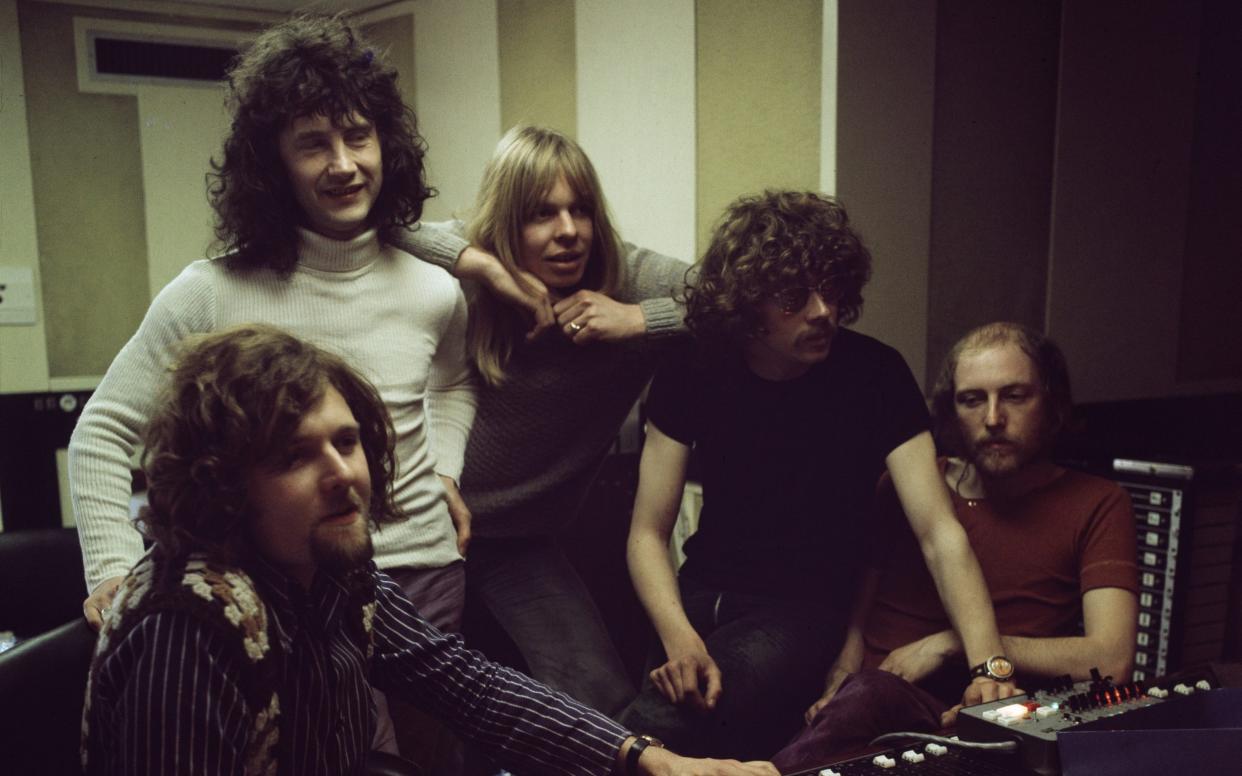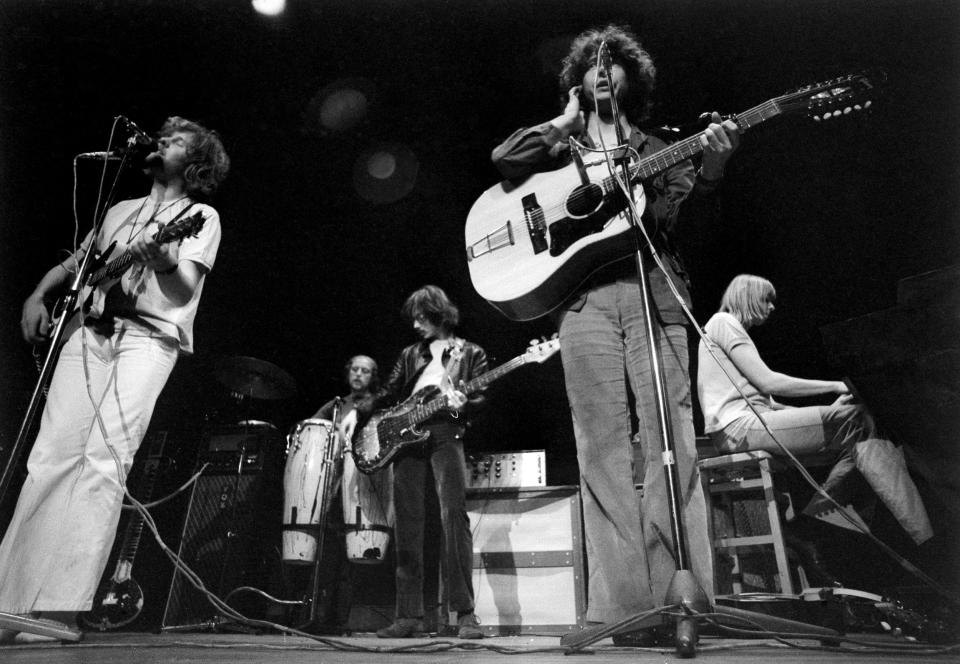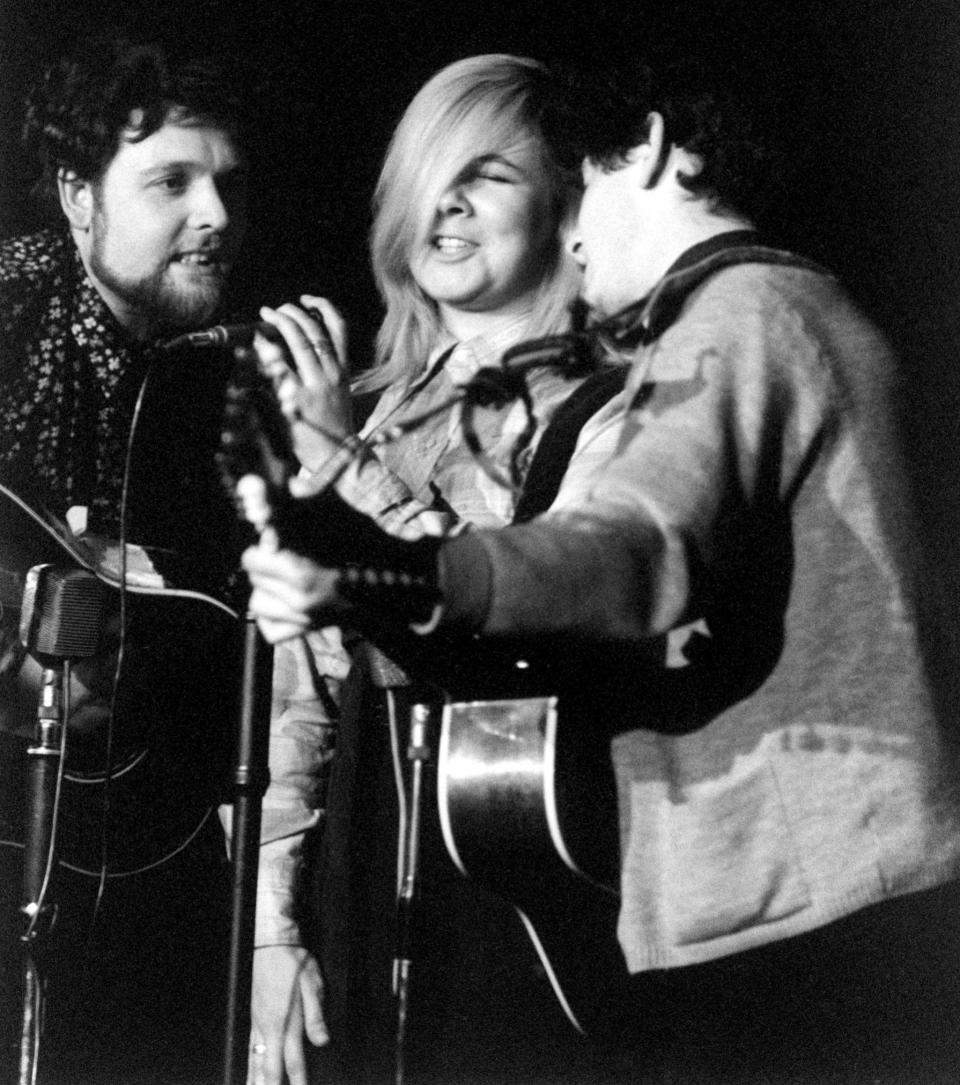Tony Hooper, co-founder of folk-rockers the Strawbs who left the band on brink of stardom – obituary

Tony Hooper, who has died aged 81, was a guitarist, singer, songwriter, and founder member of the folk-rock band the Strawbs, but quit when they were on the brink of the big time to pursue a more conventional career in engineering and publishing.
As a teenage schoolboy in Twickenham he had formed the band with Dave Cousins after they had bonded over a mutual passion for American folk and blues music. They would buy import records at the specialist shop Dobells, go to gigs by visiting Americans such as Ramblin’ Jack Elliott and Guy Carawan, and visit Cecil Sharp House, home of the English Folk Dance & Song Society, researching material.
They would also frequent West London clubs, where performers included then little-known artists such as Rod Stewart and Long John Baldry. Buying his first guitar from a schoolfriend for £3 10s, Hooper, with Cousins, first played together in a skiffle group, the Gin Bottle Four, which later evolved into the Strawberry Hill Boys, playing folk clubs, and then the Strawbs.

With the occasional addition of the singer Sandy Denny, their warm style soon found an audience, and they recorded their first, low-profile LP All Our Own Work in Denmark in 1967 – including two original Hooper compositions – although it did not get widespread release until six years later.
While Sandy Denny moved on to join Fairport Convention, Hooper’s guitar arrangements and gentle vocals knitted neatly with Cousins’s more acerbic vocals and narrative songwriting to establish a distinctive folk-rock sound which led to five increasingly successful albums – notably From The Witchwood and Grave New World – and an expanding line-up that included the keyboard virtuoso Rick Wakeman, later to join Yes.
Success, however, brought impossible demands. Cousins had become the band’s predominant songwriter and, suffering from an element of stage fright and disillusionment with his own songwriting, and under pressure from the record company for hits, from a rigorous touring schedule and from colleagues intent on abandoning their folk roots in favour of progressive rock, the laid-back, unassuming Hooper decided to walk away.
By this time he had met Jane Hunter at a party, and after their marriage he moved to Hampshire and stepped out of the limelight for a more stable, sedate lifestyle, in which he could enjoy simple pleasures such as the countryside, walking, stamp collecting and going for a pint at his local pub.
The Strawbs achieved their mainstream breakthrough with the smash hit single Part Of The Union shortly afterwards, but with no desire for pop stardom Hooper harboured no regrets or bitterness. He continued for a while doing studio work behind the scenes and producing records for friends like the Settlers, but then barely touched a guitar for more than 10 years.
The son of a Royal Marine, he was born on September 14 1939, the eldest of three children, at Eastry, Kent, but mostly grew up in West London. He attributed his musical gene to his grandfather, a professional violinist and multi-instrumentalist who ran his own dance band and inspired Hooper’s 1920s style pastiche Ah Me, Ah My, which featured on the Strawbs’ Grave New World album.
He studied Engineering at Brunel University and worked initially as an electronic systems engineer in the aircraft industry until he was made redundant, after which he and Dave Cousins decided to try their luck as professional musicians.
Having left the Strawbs, Hooper reverted to his original trade in electronics engineering and for a period worked with the Ministry of Defence, until he resigned in protest when required to work on designs enhancing the blast pattern of shells to make them more lethal.
Instead he moved into publishing, becoming a freelance book editor and writer of educational children’s books, and designed book covers for the academic publishers Palgrave Macmillan. He insisted that this gave him as much satisfaction and pride as anything he achieved in music.
He might never have picked up a guitar again but for a call out of the blue in 1982 from his former colleague Rick Wakeman, who was working on a music series for Channel 4 called Gastank with Tony Ashton and wanted to re-form the original Strawbs. Hooper agreed and played guitar alongside Cousins as they recreated one of their big songs, The Hangman and the Papist.

It re-ignited his appetite for music and he continued to make occasional appearances with the band for several years, including an acclaimed appearance at the 1983 Cambridge Folk Festival. His final appearance as a Strawb was at a momentous 30th anniversary reunion concert featuring different line-ups of the band at Chiswick House in 1998.
However, he kept his hand in playing guitar and mandolin in the more relaxed environment of ceilidhs and barn dances with the group Pitchfork; he also performed in a trio, Misalliance, with Elaine Charlson and Patricia Taylor, playing predominantly traditional and Renaissance music.
He separated from his wife Jane in 1991, but they remained on good terms, and he is survived by his son Nicholas and daughter Colette. In later life, he also met another daughter, Grace, after they accidentally discovered one another through an ancestry site.
Tony Hooper, born September 14 1939, died November 18 2020

 Yahoo News
Yahoo News 
